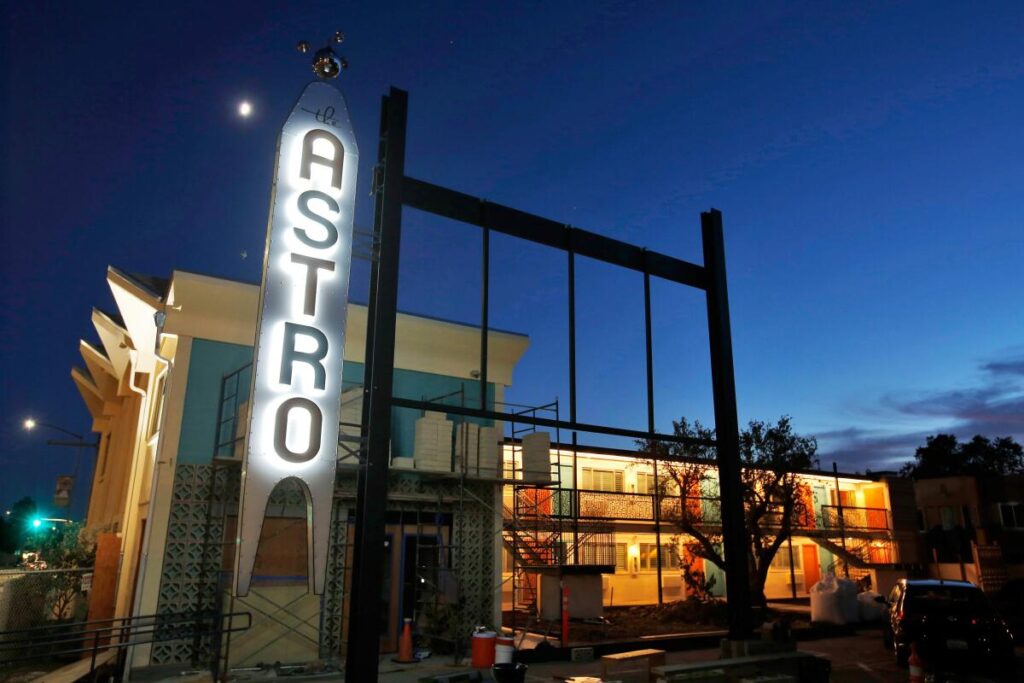Santa Rosa city officials plan to ask voters in November to raise revenue to make up for a widening operating deficit and to raise taxes on city businesses.
Budget officials are proposing changes such as increasing the hotel tax from 9% to 11% and eliminating the $3,000 cap on business taxes to more accurately reflect the costs of doing business today.
The two taxes, which have not been revised since the early 1990s, could be a boon to the city's finances if approved. The proposal would require a simple majority vote to pass.
These measures are expected to generate an additional $14 million per year in revenue to help fill a budget shortfall projected to reach $40.5 million over the next five years amid rising personnel and operating costs, flat sales tax revenue and the disappearance of one-time funding for critical programs.
Chief Financial Officer Alan Alton told a City Council subcommittee last week that the city “needs to get creative in raising revenue.”
The budget team has spent the past few months analyzing these and other potential tax measures, urging voters to vote and meeting with affected business leaders.
Alton said there are no plans to increase the city's existing general sales tax or to implement a new sales tax, adding that staff first want to “look at ordinances that we've had for a long time or never looked at and bring them into the 21st century.”
The proposal is due to be presented to the full council in July.
Business License Tax
The city's business license tax is levied on about 13,000 retailers, service providers, professional services, rental businesses and contractors registered to do business in the city. Alton said the tax hasn't been significantly revised since it was enacted in 1990.
Small businesses with annual gross receipts of $25,000 or less would pay a minimum tax of $25, while large businesses with gross receipts of $1 million or more would pay a maximum of $3,000.
The tax would bring in about $4.8 million a year.
Alton said the city's business tax administrator analyzed the current ordinance last year and found the city's tax revenues were lagging behind other cities of its size in the state, in part because of the tax cap.
City officials also felt the tax rate did not reflect the current cost of doing business and was unfair among businesses of different sizes.
Alton said budget officials are proposing to eliminate the maximum tax threshold and create a hybrid tax system in which small businesses would pay roughly the same amount in annual taxes while larger businesses would pay their fair share.
Tax rates will be increased across all business sectors, and taxation will be expanded to businesses operating rental properties with fewer than four units, such as three-family homes and vacation homes.
Under the hybrid model, businesses with total revenue of $25,000 or less would still pay $25.
Businesses are charged an additional fee for every $1,000 above that amount, ranging from $1.50 per $1,000 for general retail stores to $3.50 per $1,000 for commercial and residential rentals and professional services such as accountants and medical offices.
An analysis of registered businesses found that around 450 are likely to be affected by the update, with most of them set to pay between $3,000 and $23,000, while around 20 of the largest businesses operating in the city could pay more than $100,000.
Alton said the proposal would take effect in 2026 to give businesses time to adapt and would increase revenue by about $12 million to $16.8 million.
Occupancy tax
City officials also are proposing a 2 percent increase in the so-called transient occupancy tax rate, raising the city's rate of 9 percent, the lowest in the county, to 11 percent.
The citywide tax rate, which includes business improvement zone assessments that will be collected and distributed to the Santa Rosa Metropolitan Chamber of Commerce and Sonoma County Tourism to help market the area to tourists, will be 16%, the highest in the area.
The increase is expected to generate an additional $2 million in revenue per year.
Alton said his staff has discussed the proposal with Santa Rosa Chamber of Commerce officials, who pointed out that local hoteliers may be wary of raising prices to attract customers. Many hotels see high weekend bookings but struggle with empty rooms during the week, he said.
Members of the council subcommittee agreed the additional revenue was needed but initially expressed concern that the increase could drive away tourists and cause businesses hoping to relocate to Santa Rosa to look elsewhere.
Mayor Natalie Rogers, who chairs the committee, said a gradual increase over several years would be preferable, but updates are necessary.
The proposal comes on the heels of a surprise move by the City Council to roll back new licensing requirements and increased fines for tobacco retailers, with Mayor Rogers' three-member majority expressing concern about increased burdens on businesses. Revised rules are expected to be presented back to the City Council in July.
Committee members said it was important to explain to voters why tax increases were needed in order to gain support.
The budget team will present a proposal to the City Council at a review meeting on July 9, and it is scheduled to be discussed by the City Council on July 23.
The deadline to submit measures to the county registrar for the November ballot is Aug. 9.
Alton said city officials will continue to conduct public outreach efforts, meet with business associations and other affected industries and develop educational materials for voters.
Staff writer Paulina Pineda can be reached at 707-521-5268 or paulina.pineda@pressdemocrat.com. X (Twitter): @paulinapineda22.

